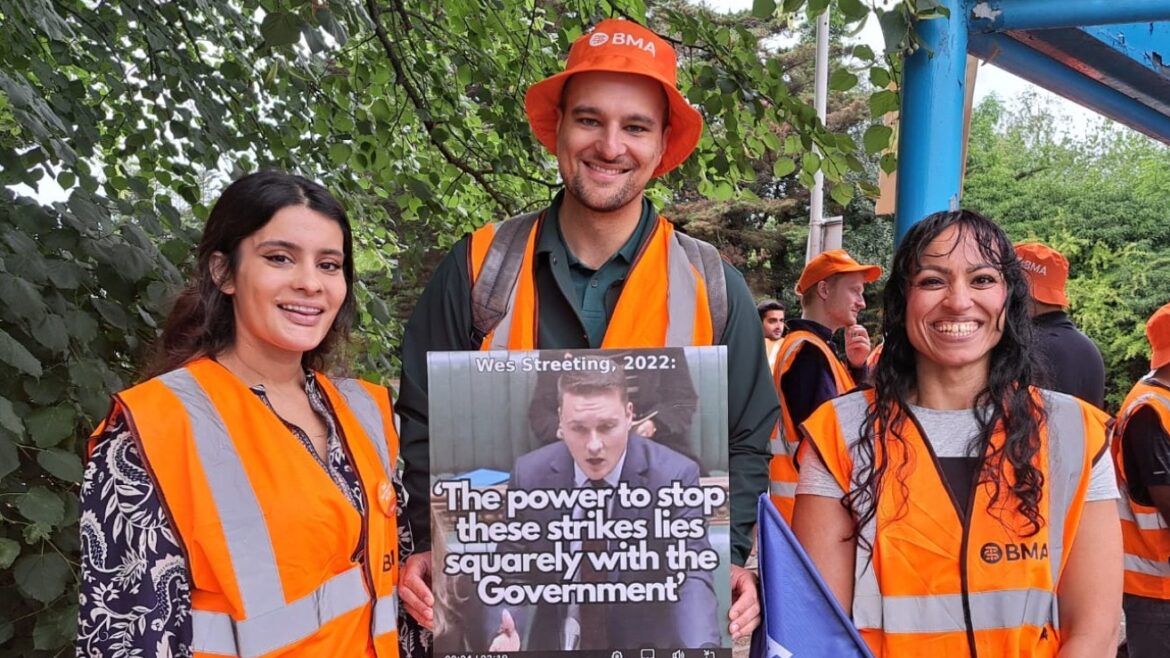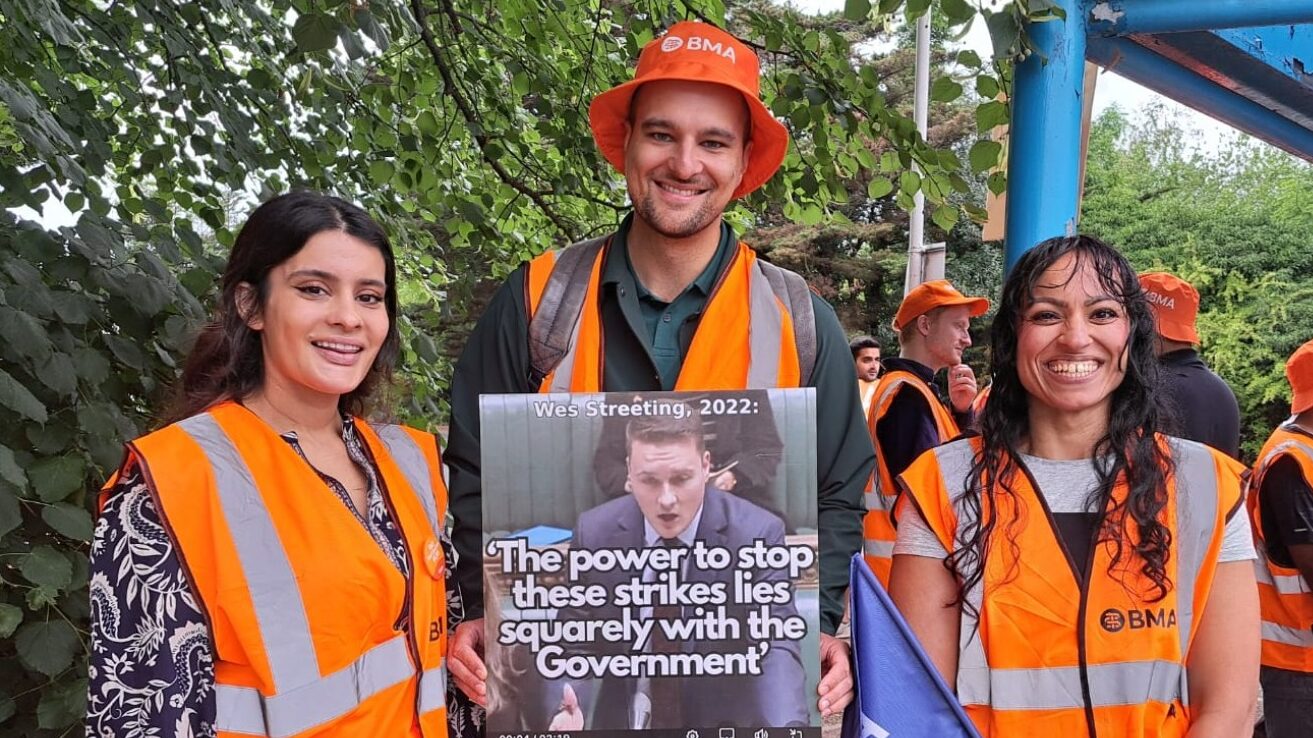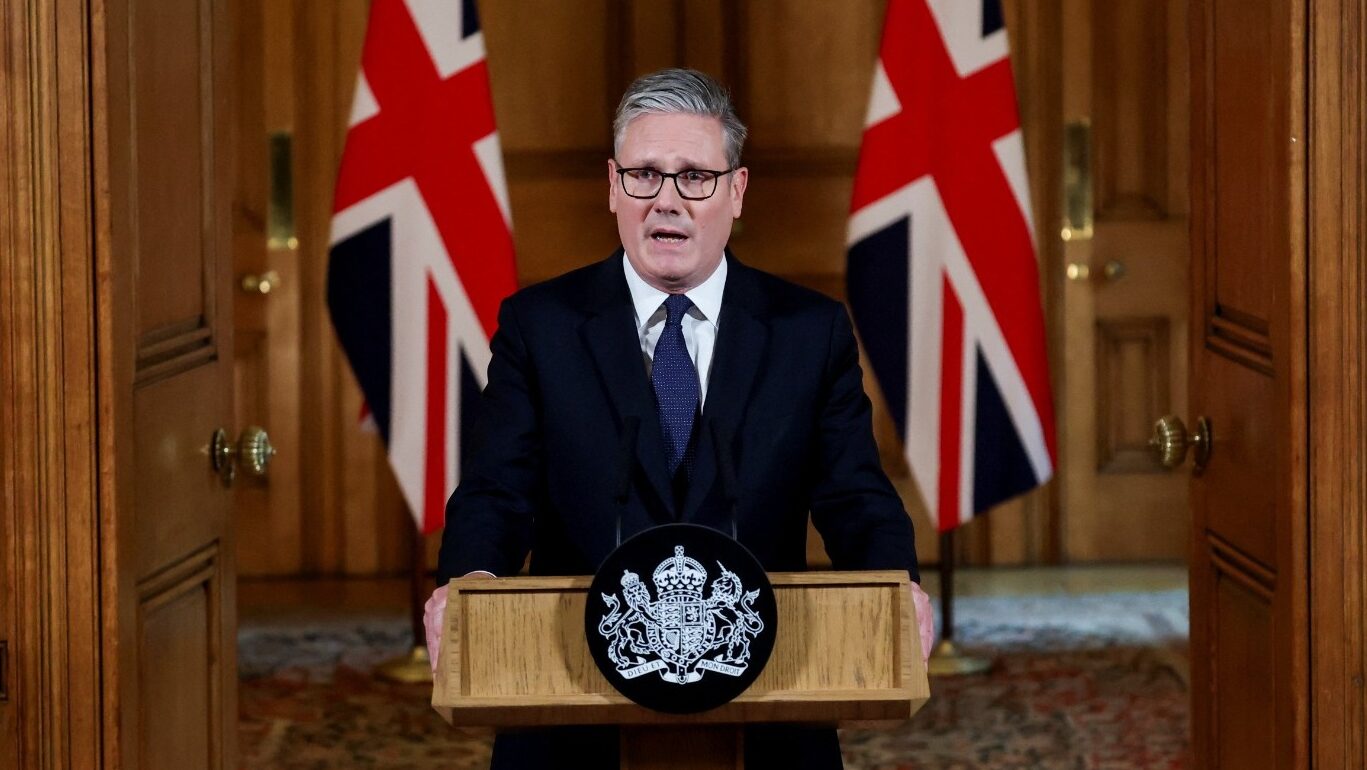Disruption across the NHS in England caused by resident doctor strike action is set to end as the five-day walkout comes to a close.
Details on the number of appointments, procedures and operations postponed as a result are expected to be published later this week, with officials saying they expect a lesser impact compared to previous walkouts.
Both the Government and the British Medical Association (BMA) have said they are prepared to continue discussions with a view to avert further strike action.
Hospital leaders have urged the doctors’ union to “recognise that the Government is not in a position to provide additional pay rises” ahead of fresh talks.
The Resident Doctors Committee (RDC) of the union refused to rule out further action on Tuesday but said it would be willing to re-enter talks with Health Secretary Wes Streeting.
Speaking from a picket line on Tuesday, RDC co-chairwoman Dr Melissa Ryan said: “There doesn’t need to be a single day of strike action.
“Wes Streeting knows what he has to do. If he wants to resolve the dispute, he has to contact us and present a credible offer.”
The union has launched a “linked dispute” with the Government over a lack of places for doctors in training.
The BMA said that this year there were more than 30,000 resident doctors applying for just 10,000 specialty training places.
A poll of 4,400 doctors conducted over the last week found that 52% of resident doctors completing their second year of training – when they enter specialty training – do not have substantive employment lined up from August.
In a statement, the co-chairs of the RDC said: “Across the NHS, this means potentially thousands of UK doctors are left in employment limbo when patients desperately need their care.”
Mr Streeting said that he is ready to discuss “real improvements to resident doctors’ working lives” but cannot go further on pay.
“We made the decision to cancel as little planned care as possible this year, and thanks to their tireless work it’s clear that far more patients have got the care they need than in previous years,” Mr Streeting said.
“That said, all industrial action comes with a level of disruption, and I feel angry and frustrated on behalf of those patients who didn’t get the service they expect due to these strikes.
“That is why my door is open to the BMA leadership to resume the talks we were having last week, before they walked out.
“After a 28.9% pay rise over the last three years, we simply cannot go further on pay this year, but there are real improvements to resident doctors working lives we can work hand-in-hand to make – from training positions to career progression and beyond.
“After over a decade of being let down, resident doctors deserve better than their current working conditions, ebbing support from the public, and a seemingly intractable position from the BMA leadership – especially given a majority of them didn’t vote for this strike action.
“I stand ready to continue our discussions. Our shared ambitions will reap rewards for both patients and staff but they can only be achieved if we work together.”
Rory Deighton, from the NHS Confederation, which represents NHS organisations, said: “We would urge the BMA to recognise that the Government is not in a position to provide additional pay rises given the pressure on departmental budgets.
“Further strikes will cause yet more disruption, delay more treatments and increase the risk to patient safety. We hope the BMA will think about the impact strikes have had on patients and fellow staff before calling more walkouts.”
NHS officials have said that cancelled bookings would be rescheduled within two weeks but warned of knock-on impacts for other patients.
During previous walkouts by junior doctors the vast majority of routine care was postponed so remaining hospital doctors – largely made up of consultants and other senior doctors – could concentrate on urgent and emergency services.
But hospitals were instructed to maintain as much routine care as safely possible during the latest walkout, which led to the BMA accusing NHS officials of putting patients at risk.
On X, the BMA posted about a number of derogation requests made by hospitals – which occur when hospitals call for striking doctors to return to work from picket lines amid concerns about patient safety.
In some cases, striking doctors were permitted to return to work but in some cases the requests were “revoked”.
Elsewhere, Mr Streeting will be seeking to appease other NHS staff groups after their pay deal was rejected by two unions and is also expected to be rejected by nurses.
The Royal College of Nursing, which represents hundreds of thousands of nurses across the NHS in England, is consulting its members on the 3.6% pay award offered for 2025/26 in England.
It is expected that nurses will overwhelmingly reject the pay offer when the consultative vote concludes later this week.
Meanwhile, health workers from the GMB and Unite unions have also rejected the offer, increasing the threat of further industrial action in the NHS.










